Leif Peng: I'm guessing around this time in the mid-1960s you started to do paperback covers, is that correct?
Shannon Stirnweis: That came along almost from the beginning. Paperbacks were really the ... 'hiding place' of illustrators who couldn't get magazine [assignments] anymore. And the less-great publishers were the ones I went to to show my stuff to. That was like Ace and... and Ballantine bought me fairly quickly too.

LP: Oh, really?
SS: Yeah, Bob Blanchard was the name of the art director there and he was a nice guy.
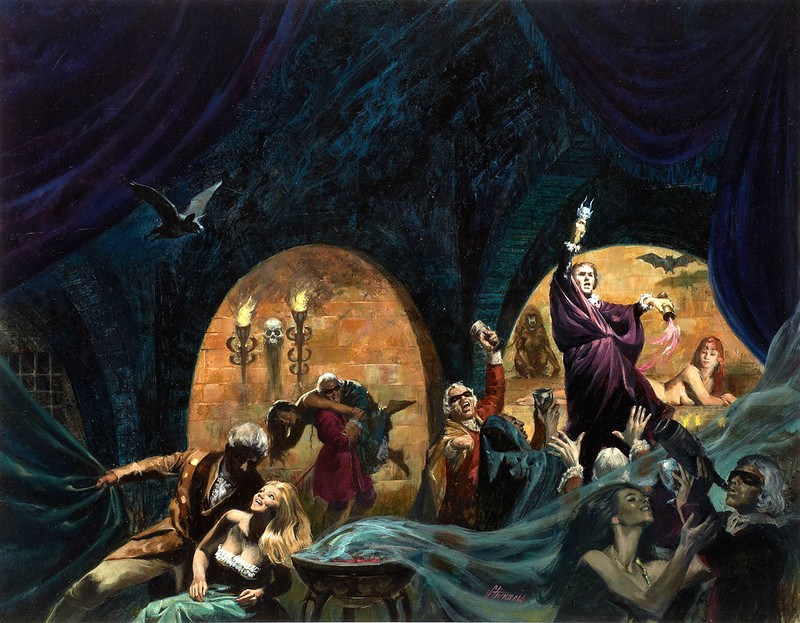
LP: Now did you go there on your own to get paperback work?
SS: Yeah. I just cold called them. In those days it was quite possible to just call up an art director and go see him the same day with your portfolio. Which is no longer true.
LP: No. So when you started doing paperback work, what sort of stuff were you able to get at the beginning? What sort of genres?
SS: Oh, detective stuff and so on. There were a lot of strata in paperbacks. The stuff I was doing early on was like, $250 a cover and was usually a gal - sometimes a big-boobed gal (we chuckle) - and a guy, a detective or a shoot-out or something.
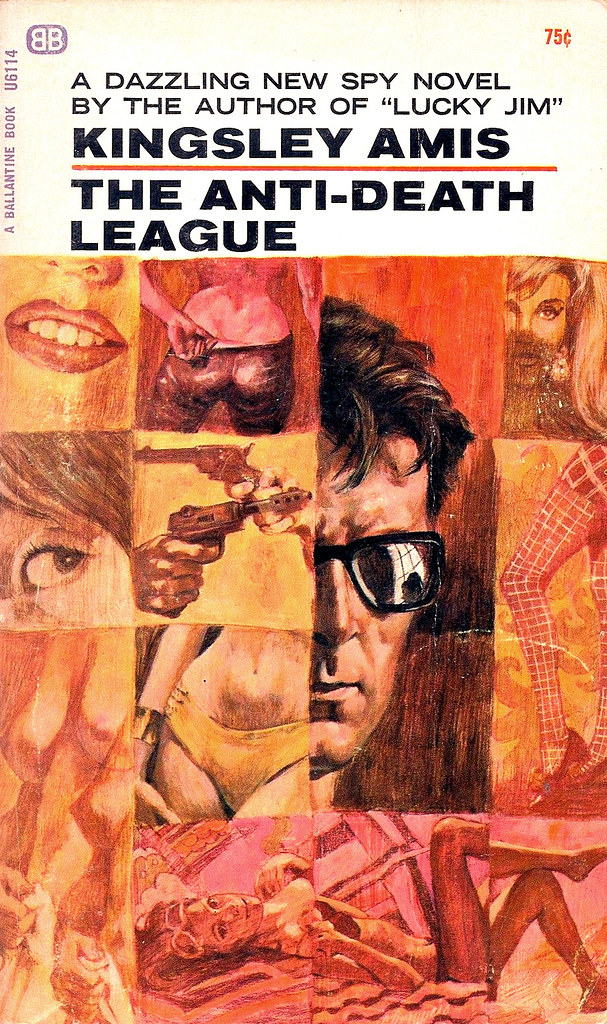
LP: Hah. Yeah... I came across one you did called "The Berlin Wall Affair" by Troy Conway, and that one's from Paperback Library, from 1967. And it's very much the sort of scenario you'd see on a Robert McGinnis spy or detective type of cover. Does that ring a bell at all?

SS: It doesn't absolutely ring a bell, no. Well, that's after I moved up a ways. Those American Library guys, they'd pay, oh, a thousand bucks or so.
LP: Wow, yeah, that's moving up for sure! Would that have been sort of the top end for paperback art back then?
SS: Uhh... yeah. It gradually got higher and higher.

LP: Let me ask you this, Shannon... did these guys tend to hang onto the artwork or did you usually get your original art back?
SS: I don't remember exactly when, but they started around some time there was going to be some litigation or some taxes around the art. Up to that time, you never saw it again.
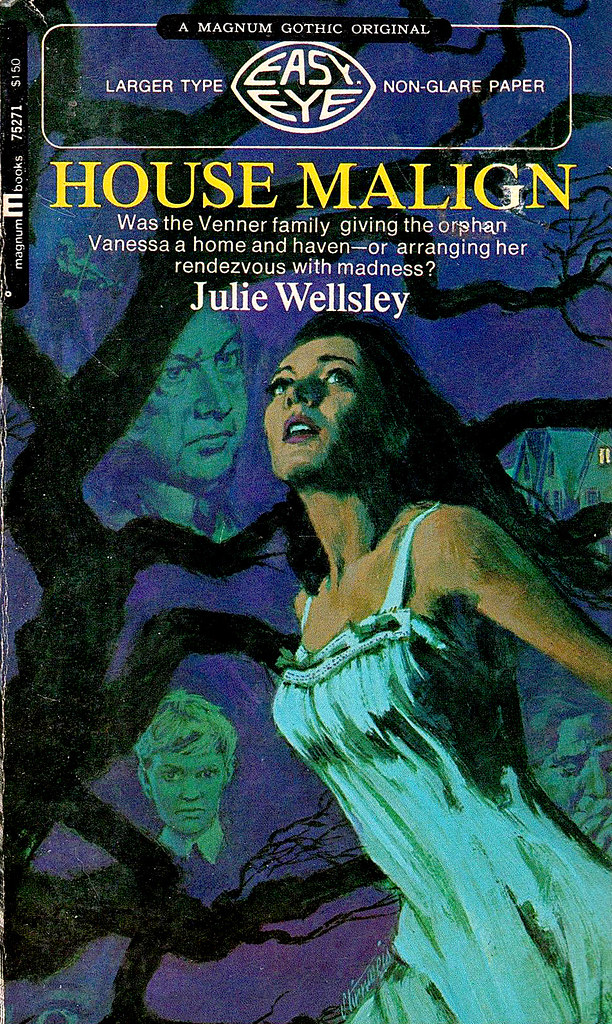
LP: I see. And how did you feel about that at the time, that you weren't getting your artwork back. Did it matter to you?
SS: Well, it mattered, but it was just the way business was done. (he chuckles)
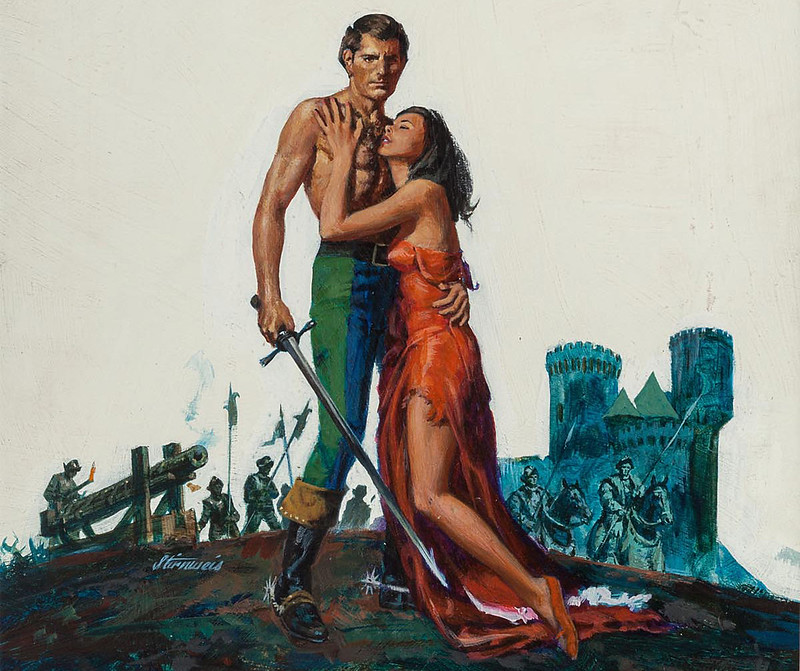
LP: So you just accepted that. And when you started to get your artwork back, did you just hang onto it or give it away to friends and family?
SS: About half and half. Some of it I gave away... some of it I dumped! (he chuckles) Yeah, I gave it away to people and I've got a huge closet full of it here.
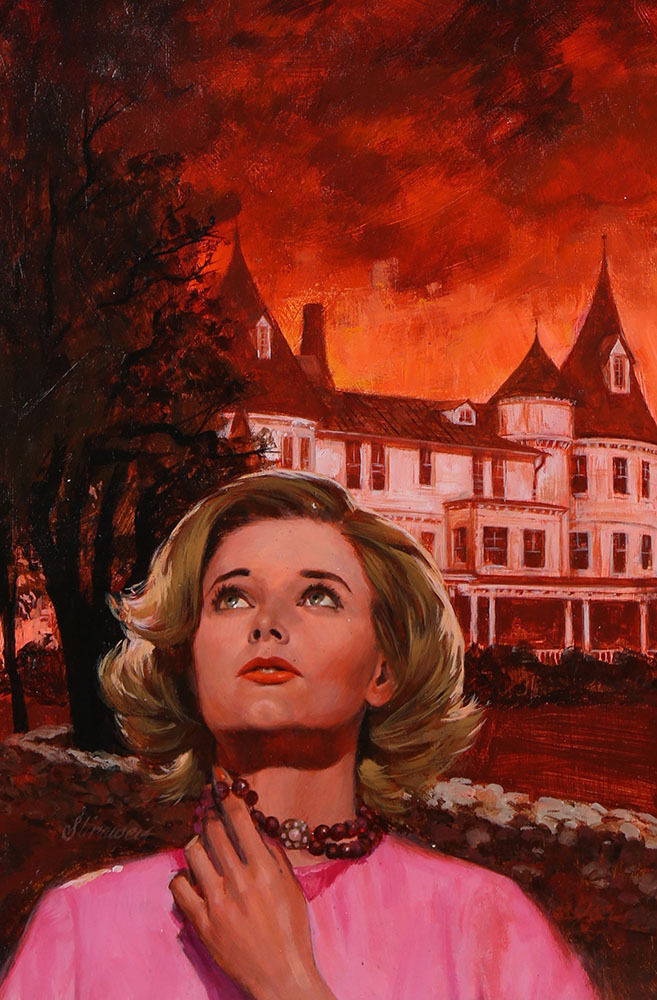
LP: The reason I ask is - you know a guy named Stan Galli?
SS: Yeah - I never met Stan Galli but he was also a west coast artist.
LP: Well, I read an article with him where he said every time the Saturday Evening Post or whoever sent back one of his originals, he'd take it out back to the barbeque and burn it. (Shannon lets out a huge laugh)
SS: Well, there was a time when your estate got taxed for everything they possessed and then they took the value of the art when the company bought it and they'd assess your heirs for that! (We both laugh)
LP: That's pretty clever of them! (chuckles) Now, you were saying when you first began doing paperback covers for Ace and so on and then you worked your way up through various genres... I found a blog where this fellow said you also painted a lot of romance covers for Harlequin. Is that right?
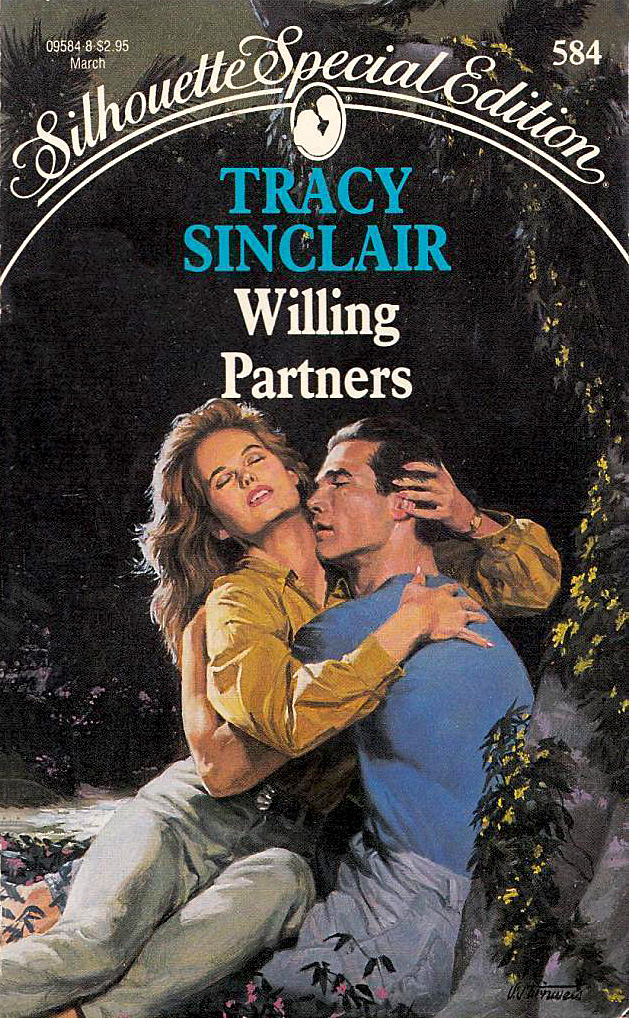
SS: That was not until the '90s. I did romance covers for Harlequin for about four years. One wrap-around cover a month for four years. And they paid decently even for the time, like thirty-five hundred for a wrap-around cover. So it gave you a base income. I was doing those and stuff for Unicover, the stamp people. You know about them?
LP: I do because I shared a studio in Toronto with a fellow named Tom McNeely and he did a lot of work for Unicover.
SS: Yeah, so I had Unicover and Harlequin and I was doing westerns for Bantam Books (about one a month). And I was feeling pretty good - three decent, steady clients - and all of a sudden all three of them gave out.
LP: You're kidding.
SS: Nope. (he chuckles)
LP: That's the way it goes when you're a freelancer, unfortunately.
SS: Yes, right.
Continued tomorrow...
Read Part 1 of the Shannon Stirnweis interview here
Read Part 2 of the Shannon Stirnweis interview here
Read Part 3 of the Shannon Stirnweis interview here








Post a Comment